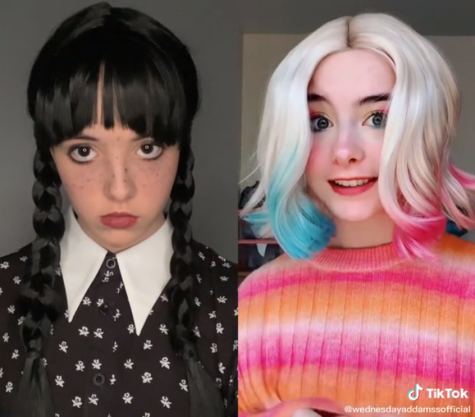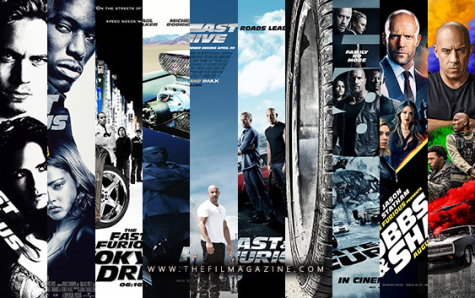A Reflection on Projection
How relating to characters in the media we love shapes both our consumption and creation of entertainment.
February 17, 2023
There’s one underlying current beneath every piece of media that anyone loves. It doesn’t matter what it is—books, movies, shows, games, etc.—and it doesn’t matter who you are; this thread is an inescapable part of enjoying media. What is this mystery connection? Simple. Self-projection onto characters.
If you aren’t super well-versed in character-based discourse, you might be wondering what exactly I mean by self-projection. Am I implying that you push your own insecurities onto characters? I mean, maybe you do, but that’s not quite what I mean. Self-projection involves heavily identifying with a character and sometimes even adding personality traits onto them in your mind as a way of feeling even closer to them. You might think you’re immune, you just like watching things! However, no one is immune. Think about your favorite show: chances are, you relate even if it’s to a lesser extent or spread across characters rather than just one.

(from TikTok account @wednesdayaddamsofficial)
A recent example of this phenomenon happening en masse is with the character of Wednesday Addams from the new TV show Wednesday. From her loneliness to her outcast nature to her friendship with the bubbly Enid, many viewers felt connected to her despite how unusual Wednesday is. This is almost certainly one of the reasons Wednesday took off the way it did: people’s connection to the character prompted them to adopt her aesthetic, draw pictures of her, write stories, and more.
In a more general sense, it’s no secret that the leads in romance movies and novels can have the personality of wet cardboard. This isn’t because the writers have no idea how to tell a good story (although some of them really don’t), rather it is so the consumer can project themself into the lead. Before you begin to snicker to yourself “I don’t watch or read romantic media!” remember that this is not contained to the romance genre. Power fantasies are extremely common in action movies and shows. These protagonists lack many defining characteristics to allow the viewer to picture themself as the hero. This works as a pretty strong marketing tactic — after all, how many Fast and Furious and Die Hard movies are there?

This phenomenon isn’t inherently bad! As previously stated, everyone participates in this to some extent, and it can be a good way to quickly hook in consumers. However, writers need to make sure that their characters aren’t just blank slates with no personality. A character does not need to be perfect and featureless to be relatable—hell, people love villains most of all, and they are the farthest thing away from a personality-less goody-two-shoes. So feel free to continue to see yourself in any kind of character, and make sure the next time you write fiction, you don’t fall into the cookie-cutter self-insert trope; people love any sort of character with motivation and emotion.


